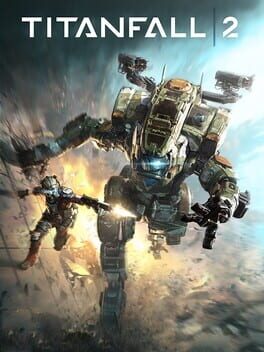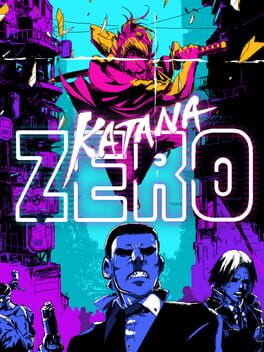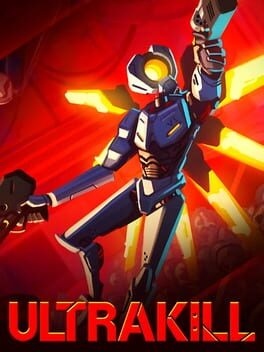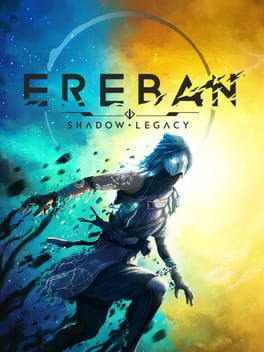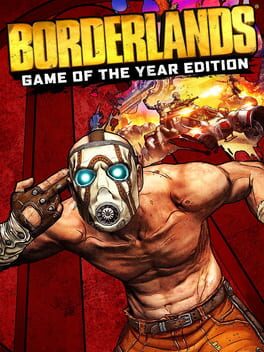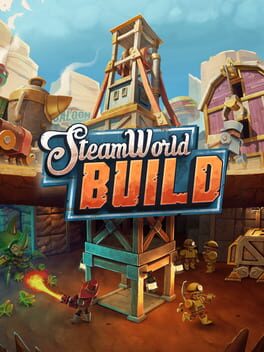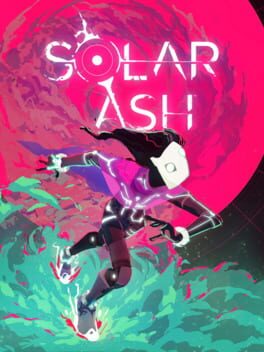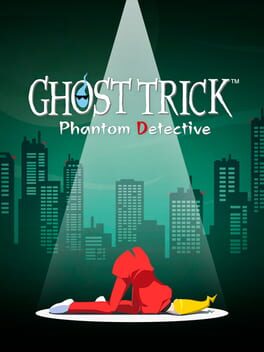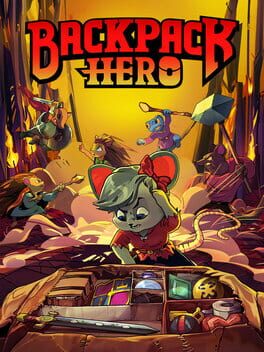CustomEpicness
Bio
Nothing here!
Badges

Best Friends
Become mutual friends with at least 3 others

Donor
Liked 50+ reviews / lists

Liked
Gained 10+ total review likes

N00b
Played 100+ games

GOTY '23
Participated in the 2023 Game of the Year Event

Noticed
Gained 3+ followers
Favorite Games
181
Total Games Played
012
Played in 2024
033
Games Backloggd
Recently Played See More
Recently Reviewed See More
Damn you're really gonna make this as your first game? Go all in on the Aragami, Dishonored, and Thief style of stealth adventure games, throw in some unique twist on the shadow powers, and roll that wheel? Mad respect, it was pretty good
Going against the norm for these types of games, the worldbuilding was honestly my favourite part. The plot is very generic to the genre it's working in, but the cleanliness of the context really makes up for going through the same plot beats again, especially for resolving problems between mixing magic into a sci-fi world. The patterns for how the story progresses starts deviating once the game is ending, in ways that were both incredibly obvious and synergistic with the gameplay, but not necessarily in a good satisfying conclusory way. It's clear Baby Robot Games really wanna make another game centred around Khepri and the Ereban again, but for a first game this large you gotta put most of your eggs in this basket and commit to a complete experience for this game. I've got more specific complaints (especially with the ending), but this is a spoiler free review so I'm not doing it.
And just as important to the plot being presented is how it's told, which comes in varying levels of quality. Top of the list is the logs, they're consistently great to read and usually filled with either nice little consequences of the world and game design, or a neat little reference to inspirations or earlier elements that this game presents. Next up is conversations between characters, usually pretty good with some stellar voice actors (who get to actually add some characterisation while performing) with some misses in the writing, always fun to see two characters who don't trust each other talk about stuff that matters to both of them though. And lastly is people talking to themselves or to someone who can't talk back, this is consistenly bad for some reason, chock full with bad quips like they're a form of post-marvel lara croft or people saying things aloud so the player can be reminded of something they were told less than a minute ago.
The gameplay is honestly exactly as you expect it to be, or at least it was for me. Trying to emulate the shadow powers from Aragami in a 'tool-kit' of abilities from Dishonored with a mix of straight-forward and exploratory level design from any game in the genre. The fun part, and the mechanic that trivialises everything else, is shadow merging (which the devs said in an FAQ was taken from Splatoon). While the ability is incredibly freeing and allows the player to be more active more often while playing, it also makes every other ability completely useless or need to be broken to match. Why blind someone when their sightline doesn't matter when you're merged? Why give us the ability to become invisible for a significant period of time but only while in shadow, then fill every level with mostly shadows? I assume the answer to both of these is to add more engaging mechanics, however it feels like the intended method of playing the game and the actual design of the game presented are in disagreement. Just to reinforce this theory, the morality's outcomes are so trivial it's laughable, as all that time you spent keeping the bots alive are rendered comedic once you realize what purpose it serves.
The visuals of the game are surprisingly unique for how much it tries to emulate the generic palettes of unity and unreal engine. The cartoony characters pop against the texture-matted environments, while they blend seemlessly into the anti-aliased over bloomed sharpened geometric details the game engine creates. While the shading and colour choices come off as generic it really creates this clean visual style between the light and dark in a less sharp contrast while lending itself to focus on visual clarity. Plus the texture and model designs add a lot of personality and detail on top of the shading and colouring that helps sell other aspects of the game as more natural. It becomes very eye-catching while remaining integrated into the experience, which especially helps the constant blending of light and dark in the environments.
This seems like a real achievement for a studio's first game, managing to reach a level of great quality with a scope and execution this big and maintain the ambition to iterate on a well-established genre, but it's actually their second game. You can find the Ereban prologue in a first free game called Atlas' Fate, which I'd recommend as a taster for what this game is like (just given from what I've seen, haven't played it myself). I already know that Baby Robot's next game will be baller after a little more experience, so the question becomes do they survive long enough to make it? I feel like the endings to the game will give a good indicator of people's thoughts on the possibility, as it somewhat feels like the perspectives the game could hold on itself
Really makes you feel like Yhelba: Veil Heritage
Going against the norm for these types of games, the worldbuilding was honestly my favourite part. The plot is very generic to the genre it's working in, but the cleanliness of the context really makes up for going through the same plot beats again, especially for resolving problems between mixing magic into a sci-fi world. The patterns for how the story progresses starts deviating once the game is ending, in ways that were both incredibly obvious and synergistic with the gameplay, but not necessarily in a good satisfying conclusory way. It's clear Baby Robot Games really wanna make another game centred around Khepri and the Ereban again, but for a first game this large you gotta put most of your eggs in this basket and commit to a complete experience for this game. I've got more specific complaints (especially with the ending), but this is a spoiler free review so I'm not doing it.
And just as important to the plot being presented is how it's told, which comes in varying levels of quality. Top of the list is the logs, they're consistently great to read and usually filled with either nice little consequences of the world and game design, or a neat little reference to inspirations or earlier elements that this game presents. Next up is conversations between characters, usually pretty good with some stellar voice actors (who get to actually add some characterisation while performing) with some misses in the writing, always fun to see two characters who don't trust each other talk about stuff that matters to both of them though. And lastly is people talking to themselves or to someone who can't talk back, this is consistenly bad for some reason, chock full with bad quips like they're a form of post-marvel lara croft or people saying things aloud so the player can be reminded of something they were told less than a minute ago.
The gameplay is honestly exactly as you expect it to be, or at least it was for me. Trying to emulate the shadow powers from Aragami in a 'tool-kit' of abilities from Dishonored with a mix of straight-forward and exploratory level design from any game in the genre. The fun part, and the mechanic that trivialises everything else, is shadow merging (which the devs said in an FAQ was taken from Splatoon). While the ability is incredibly freeing and allows the player to be more active more often while playing, it also makes every other ability completely useless or need to be broken to match. Why blind someone when their sightline doesn't matter when you're merged? Why give us the ability to become invisible for a significant period of time but only while in shadow, then fill every level with mostly shadows? I assume the answer to both of these is to add more engaging mechanics, however it feels like the intended method of playing the game and the actual design of the game presented are in disagreement. Just to reinforce this theory, the morality's outcomes are so trivial it's laughable, as all that time you spent keeping the bots alive are rendered comedic once you realize what purpose it serves.
The visuals of the game are surprisingly unique for how much it tries to emulate the generic palettes of unity and unreal engine. The cartoony characters pop against the texture-matted environments, while they blend seemlessly into the anti-aliased over bloomed sharpened geometric details the game engine creates. While the shading and colour choices come off as generic it really creates this clean visual style between the light and dark in a less sharp contrast while lending itself to focus on visual clarity. Plus the texture and model designs add a lot of personality and detail on top of the shading and colouring that helps sell other aspects of the game as more natural. It becomes very eye-catching while remaining integrated into the experience, which especially helps the constant blending of light and dark in the environments.
This seems like a real achievement for a studio's first game, managing to reach a level of great quality with a scope and execution this big and maintain the ambition to iterate on a well-established genre, but it's actually their second game. You can find the Ereban prologue in a first free game called Atlas' Fate, which I'd recommend as a taster for what this game is like (just given from what I've seen, haven't played it myself). I already know that Baby Robot's next game will be baller after a little more experience, so the question becomes do they survive long enough to make it? I feel like the endings to the game will give a good indicator of people's thoughts on the possibility, as it somewhat feels like the perspectives the game could hold on itself
Really makes you feel like Yhelba: Veil Heritage
It's so interesting having played this game for the first time after having invested so much time into 2, checking out tales and very briefly for the pre-sequel, investing even more time into 3, liked the direction wonderlands forged for itself, and the other one with those tediore guards. It feels like getting into the backstory for the wacky side character and it's just something ordinary that made them eventually learn their own identity, becoming the loveable goofball who keeps getting those b-plots for some reason. My expectations for this game were far far off in the land of optimizing skill trees and farming weapon parts, and I instead get rake with a love letter slamming in my face.
The rpg elements of the borderlands games had also seemed so clearly influenced by diablo to me before playing this game, and afterwards it makes so much more sense. This game seems uninfluenced by any particular popular rpg but instead by the greater genre as a whole. They had useable med packs you kept in your inventory just to feel like each mission was an adventure as you used your 'supplies' out hunting, and unique artifacts for additional customization that allowed the skill trees to remain general with unfocused abilities for any situation. It was weirdly refreshing to experience, and crude in it's implementation.
Additionally, enemies hit hard in this game. We're far far before the time of Hellzerker Amara deleting entire areas of bandits simply with one hellwalker headshot, and way back in the times of multi-magazine tugs-of-war with action skills being used more to turn the tides rather than ctrl-alt-del. More often than not being under levelled meant losing health much too quickly and grinding became a must, but the missions you can grind are much more streamlined. Again it's refreshing, but I love me my shiny things and none of the cleanliness nor bells-and-whistles that makes the later games so replayable are here.
Plus I was expecting more from the story of this game, given how much the games between and including 2-3 reference it. Old haven in tales featuring a giant facility cutting into the town that simply isn't there in 1, referencing tannis and helena pierce in wildly different contexts in 2 despite them being equally as important in 1, Lucky being a larger part of the game in 1 only to end up as setup for a sidequest in 2, Marcus being the sleazy businessman he is slowly animorphing into a caricature and bed-time reader in later games, Atlas being set up to have this wacky technology for us to only learn about it in 3 after the company was hard reset, etc. It really feels like you're walking through npcs in the game, each leaning into unimportance as you leave each area, which is wild considering where the series immediately went with 2. It's much more focused on the vibe, being that of anarchic survival with overflowing mountains of discarded weaponry (despite the surprising lack of manufacturer identity).
It's difficult to treat this game in a vacuum given it's own story is basically setup for the next one (I didn't even know they foreshadowed 4N631's identity here), and everything that comes after is such a vast improvement in the aspects it decides to keep. I will probably miss the versions of artifacts as presented in this game the most, but oh boy am I glad 3 focused on movement and traversal so much cause this game only likes the w key and nothing else. Surprisingly, I can only recommend this game to people who have already played another borderlands game to completion, if only because I think my enjoyment worked because I had another game to marvel at the differences between. Or a friend, this game was clearly made with a multiplayer experience in mind
The rpg elements of the borderlands games had also seemed so clearly influenced by diablo to me before playing this game, and afterwards it makes so much more sense. This game seems uninfluenced by any particular popular rpg but instead by the greater genre as a whole. They had useable med packs you kept in your inventory just to feel like each mission was an adventure as you used your 'supplies' out hunting, and unique artifacts for additional customization that allowed the skill trees to remain general with unfocused abilities for any situation. It was weirdly refreshing to experience, and crude in it's implementation.
Additionally, enemies hit hard in this game. We're far far before the time of Hellzerker Amara deleting entire areas of bandits simply with one hellwalker headshot, and way back in the times of multi-magazine tugs-of-war with action skills being used more to turn the tides rather than ctrl-alt-del. More often than not being under levelled meant losing health much too quickly and grinding became a must, but the missions you can grind are much more streamlined. Again it's refreshing, but I love me my shiny things and none of the cleanliness nor bells-and-whistles that makes the later games so replayable are here.
Plus I was expecting more from the story of this game, given how much the games between and including 2-3 reference it. Old haven in tales featuring a giant facility cutting into the town that simply isn't there in 1, referencing tannis and helena pierce in wildly different contexts in 2 despite them being equally as important in 1, Lucky being a larger part of the game in 1 only to end up as setup for a sidequest in 2, Marcus being the sleazy businessman he is slowly animorphing into a caricature and bed-time reader in later games, Atlas being set up to have this wacky technology for us to only learn about it in 3 after the company was hard reset, etc. It really feels like you're walking through npcs in the game, each leaning into unimportance as you leave each area, which is wild considering where the series immediately went with 2. It's much more focused on the vibe, being that of anarchic survival with overflowing mountains of discarded weaponry (despite the surprising lack of manufacturer identity).
It's difficult to treat this game in a vacuum given it's own story is basically setup for the next one (I didn't even know they foreshadowed 4N631's identity here), and everything that comes after is such a vast improvement in the aspects it decides to keep. I will probably miss the versions of artifacts as presented in this game the most, but oh boy am I glad 3 focused on movement and traversal so much cause this game only likes the w key and nothing else. Surprisingly, I can only recommend this game to people who have already played another borderlands game to completion, if only because I think my enjoyment worked because I had another game to marvel at the differences between. Or a friend, this game was clearly made with a multiplayer experience in mind
Real basic rpg roguelike with a cool inventory management mechanic stolen from another game twist. For some reason I cannot like the progression system in this game, either cause of it being too discrete featuring large jumps in stuff to do will larger valleys of catching up on the stuff, or cause it feels like you're not really getting new stuff to do while playing

